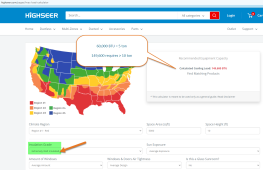If you were trying to plan for a grid outage in FL and have a Sol-Ark 15K, 30kwH battery bank and 11.2kWh solar, what would you look for if you needed 5 tons of AC? I currently have 5 tons upstairs and 5 tons downstairs. The upstairs unit will need to be replaced and I wanted to start researching before it must be replaced. I was wondering what you all have found that works well for this type of setup. Options I have heard of but don't necessarily know much about include
1) Single-stage HP with a soft start (SS)
2) 2-stage HP with SS ( I did read a thread about this)
3) 5-stage HP with variable speed air handler (AH)
4) Inverter type with communications
5) Others?
I'm basically trying to find a system that would work with the SA without needing much attention. I didn't mention yet that I have a 1 ton inverter mini split that would operate seamlessly during an outage but I'm hoping for a suggestion for a similar solution but on a larger scale...5 ton, whole house type with AH. I realize I'd still need to monitor the battery bank, but I feel like there are a lot of you that either have similar questions or have knowledge you have discovered on the topic. Hopefully this is a "cool" topic that lots will benefit from. Please contribute to this thread if you have experience, knowledge, advice or just want to jump in with an opinion. Appreciate you all!
that lots will benefit from. Please contribute to this thread if you have experience, knowledge, advice or just want to jump in with an opinion. Appreciate you all!
1) Single-stage HP with a soft start (SS)
2) 2-stage HP with SS ( I did read a thread about this)
3) 5-stage HP with variable speed air handler (AH)
4) Inverter type with communications
5) Others?
I'm basically trying to find a system that would work with the SA without needing much attention. I didn't mention yet that I have a 1 ton inverter mini split that would operate seamlessly during an outage but I'm hoping for a suggestion for a similar solution but on a larger scale...5 ton, whole house type with AH. I realize I'd still need to monitor the battery bank, but I feel like there are a lot of you that either have similar questions or have knowledge you have discovered on the topic. Hopefully this is a "cool" topic



